A rent-to-own agreement refers to an agreement whereby a person rents a property with an option to purchase it at the end of the rental period. In this agreement, the seller-lessor remains the owner of the property and still has full rights during the duration of the lease, and before the buyer-lessee decides to purchase the property.That said, DMCI Homes Leasing offers a variety of rent-to-own condos that you may look into. And while the concept of rent-to-own is rather confusing and the moving in itself may also be overwhelming, DMCI Homes is here to help clear the air of doubt and teach you about the intricacies of “rent-to-own program.”
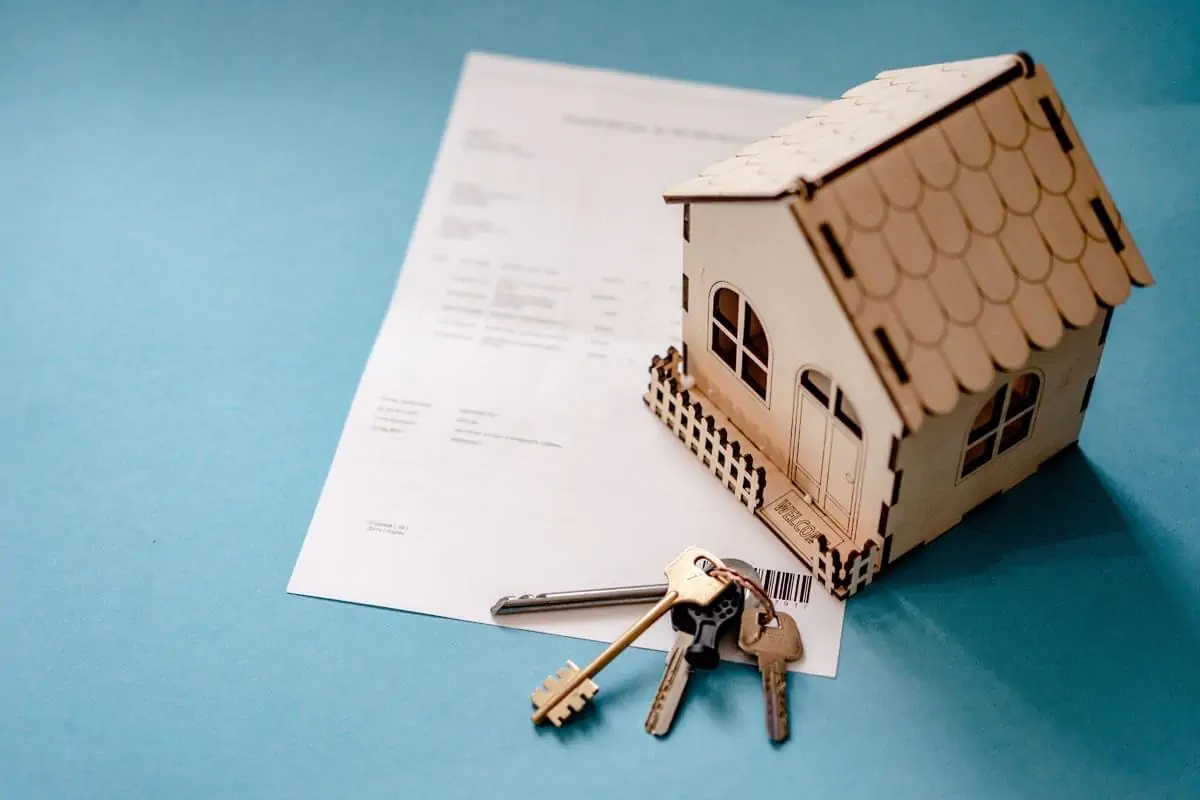 Photo courtesy of Oleksandr Pidvalnyi via Pexels
Photo courtesy of Oleksandr Pidvalnyi via Pexels
How rent-to-own works
If you want to buy a house, normally you will need a mortgage in order to finance your purchase. And in order to qualify for a mortgage, you will need a good credit score as well as sufficient money for the down payment. Without going through these processes, you may not be able to purchase a house or condo that you want.
Having said that, you are not without an alternative. You can always opt to choose a rent-to-own agreement. Under a rent-to-own agreement, you can rent a condo or a property for a fixed period of time and before the period expires, you will be given the option to purchase the property. The purchase price is typically lower because the aggregate amount of rent that you pay throughout the lease will be considered as partial payment.
Structure of a rent-to-own agreement
A rent-to-own agreement is actually comprised of two different agreements, namely:
- The standard lease agreement which is an agreement between a tenant and landlord. You are still required to pay your rent and title to the property still remains with the landlord. These terms may also include the duration of the lease, the amount of rent to be paid, as well as the maintenance and repair of the property leased.
- The option to purchase where the tenant is given the option to purchase the property at the end of the term of the lease. The tenant, however, is required to pay an option price. The option price serves as the amount the tenant pays to “reserve” the property within a specified period.
- Note: The option price does not form part of the purchase price. Whether the tenant exercises the option to buy, the option price will nonetheless be given to the landlord. This is because the option to buy is the payment of the period within which the landlord is encumbered to hold and reserve the property for the tenant.
Specific terms and conditions in a rent-to-own agreement
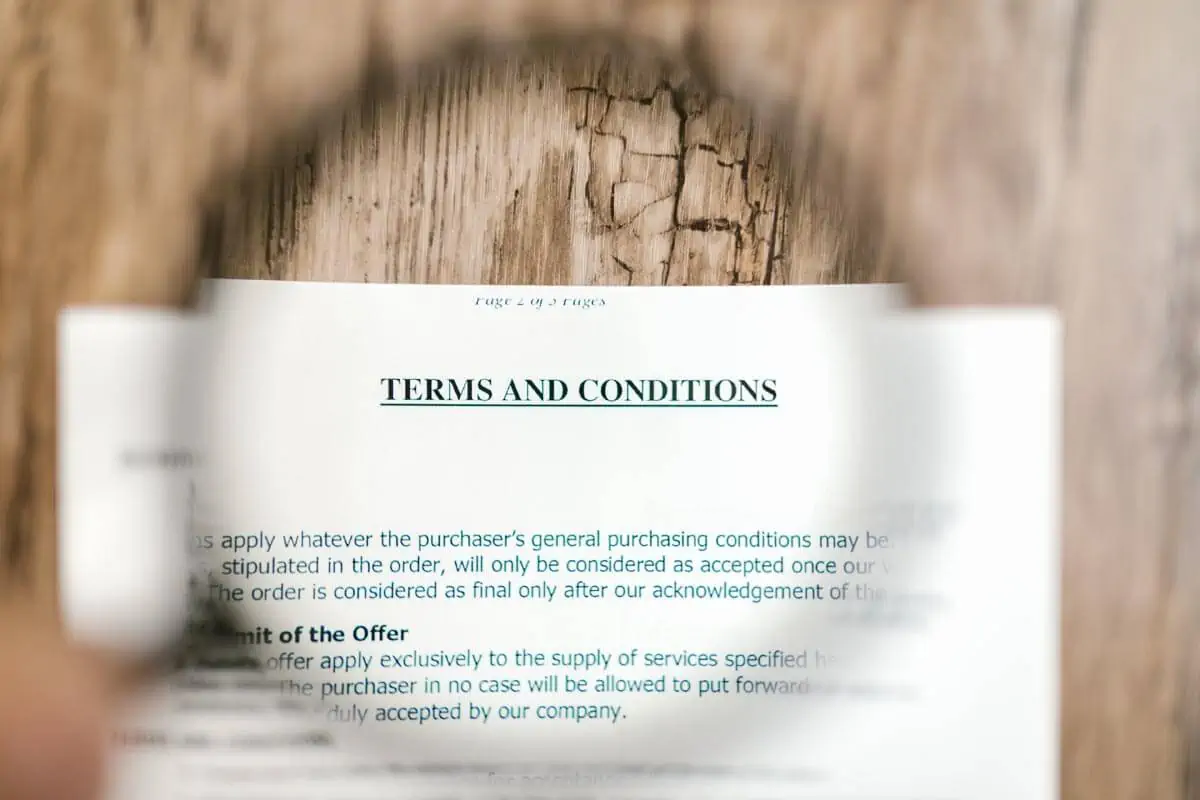 Photo courtesy of RODNAE Productions via Pexels
Photo courtesy of RODNAE Productions via Pexels
In a rent-to-own agreement, there are specific terms and conditions that you and your landlord need to agree with. This is to ensure that both of you are on the same page and therefore avoid any troubles in the future. Here are the following terms and conditions in a rent-to-own agreement.
A. Kinds of lease agreement
There are normally two types of agreements that you can enter. These are:
- Lease agreement with an option to purchase. In this kind of contract, you are given the right – not an obligation – to purchase the property at the end of the lease term. Thus, If you do not want to purchase the property at the end of the option period, you can just leave it as it is.
- Lease agreement with a purchase agreement. In this kind of contract, you can be legally obligated to purchase the home at the end of the lease period. Thus, make sure that you perform a home assessment and inspection before you enter into this kind of agreement.
B. Purchase price
In rent-to-own contracts, there must be a specification on when and how the purchase price of the property will be determined. This is to ensure that you will be prepared at the end of the lease should you decide to purchase the property. In certain instances, you and the seller may agree that the purchase price shall be the market value of the property at the time of the signing of the lease agreement. In other cases, you may agree that the purchase price shall be the market value at the end of the lease term.
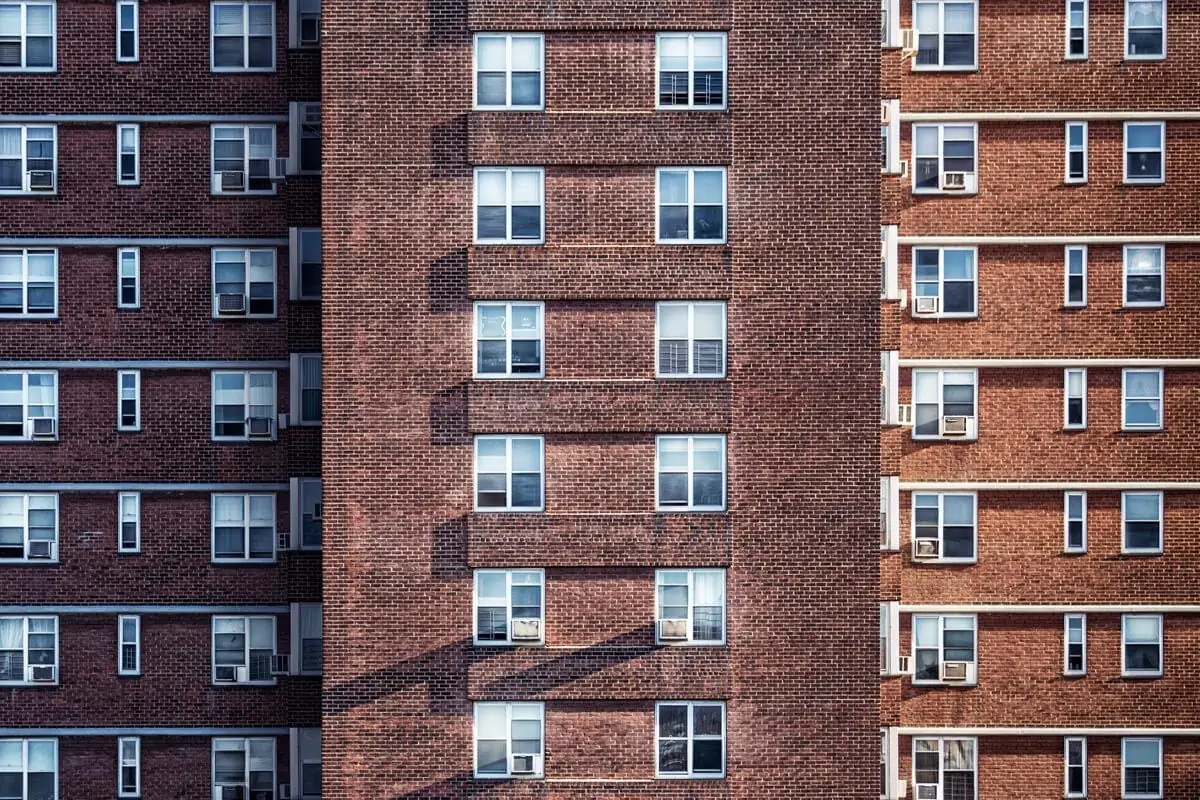 Photo courtesy of Vladimir Kudinov via Pexels
Photo courtesy of Vladimir Kudinov via Pexels
However, in most cases, buyers often prefer a “locked-in” price where the purchase price is at a fixed amount regardless of the market value of the property. This is beneficial when the prices of properties in the market are trending upwards. DMCI Homes offers a rent-to-own agreement with a locked-in price option that would “shield you from any potential unit price increase in the future.”
C. Option fee
Option fee is another crucial aspect of a rent-to-own agreement. An option fee refers to that money wherein the potential purchaser pays inorder to reserve the property. This is a one-time non refundable fee that allows you to buy the property within a specified period in the future before the lease expires.
D. Lease period
A lease period refers to that period wherein the tenant is allowed to use the property. The lease period must be clearly spelled out in your contract. Knowing when your lease ends is beneficial for two things:
- It allows you to properly budget your expenses so that you can exercise your option; and
- It allows you a reasonable time to prepare a sufficient amount of cash if you ultimately decide to exercise your option to purchase the property.
Thus, it is important that you and your landlord agree on the lease term so that you can be given time to prepare.
E. Maintenance expenses
Ownership over the property remains with the landlord, however, at the end of the lease, you might want to purchase the property. Thus, both you and your landlord have reasons to keep the property in good condition. Due to this, your lease agreement should specify who between you and the landlord will be responsible for the maintenance expense and repairs.
F. What your monthly rent covers
Both a rental agreement and a document outlining your desire to purchase the home must be signed in order to move into a rent to own property. The owner may also collect a rent credit in addition to the regular monthly rent. This payment is for the right to purchase the property at the current price at the end of the lease. This rent credit becomes part of the downpayment for the home should the lessor exercise his option to purchase. In DMCI Homes’ rent-to-own program, 60% of your total lease payments as part of your down payments.
Things to remember when moving into a rent-to-own condo
Indeed, a rent-to-own condo is a wonderful alternative for those people who are not yet ready to purchase a house. DMCI Properties has a variety of rent-to-own properties that are available for you, but first let us look at these eight things that you should remember when moving into a rent-to-own condominium.
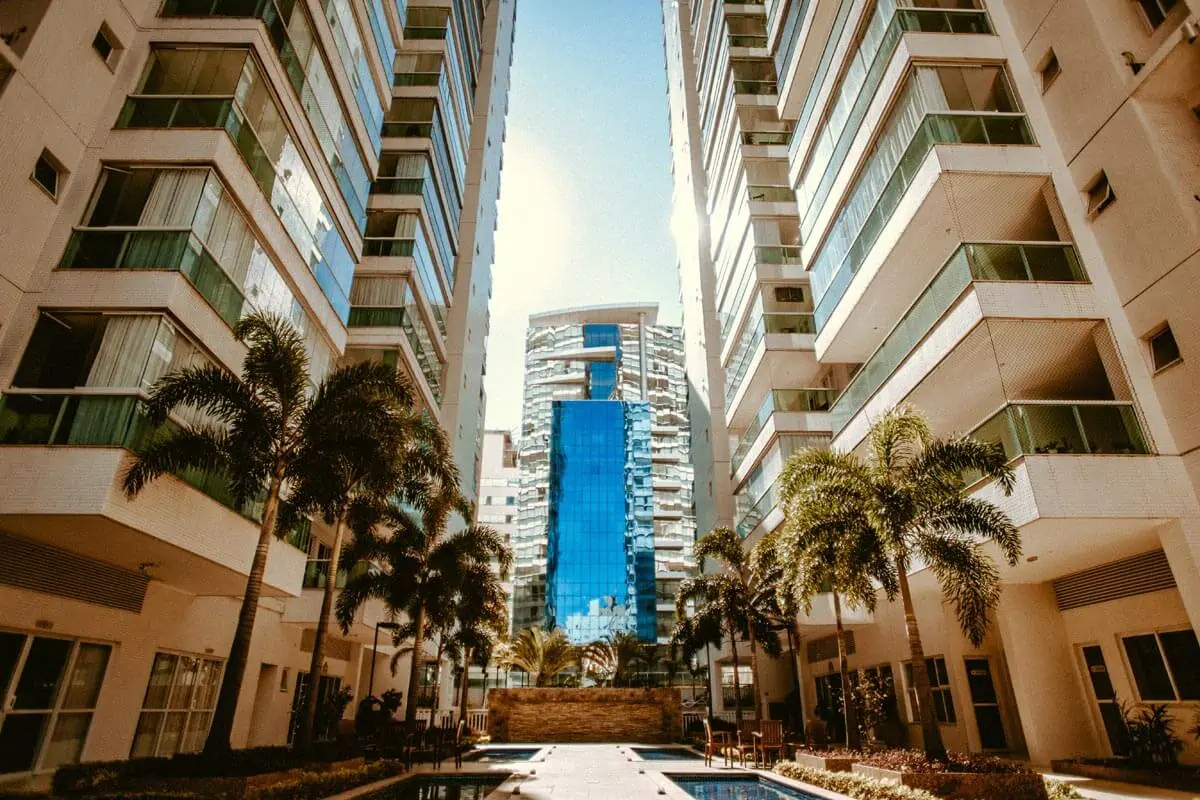 Photo courtesy of Jonathan Borba via Pexels
Photo courtesy of Jonathan Borba via Pexels
#1. Manage your Finances
One of the key benefits of an RTO arrangement is that it provides you the chance to move into your dream property. It also gives you time to accumulate money should you decide to purchase it. A rent-to-own agreement’s gradual payment process spreads your payments throughout a long period of time. Thus allowing you to properly finance and budget your mortgage and rent payments.
So make sure to take this opportunity to raise your income and accumulate savings for the future should you decide at the end of the lease to buy the property.
#2. Declutter and unpack
Before you pack up your belongings, make sure to declutter and get rid of anything that is no longer useful or necessary. The importance of decluttering is highlighted when you will have less things to pack and organize when you get to your condo.
Here are the following are some convenient ways to declutter and unpack:
- Choose the right boxes. Choosing a box that has the right size and dimensions allows you to make sure that everything is neatly and carefully wrapped.
- Categorize your boxes. Categorizing your boxes according to their contents prevents you from rummaging through each box and looking for a particular item that you need. Labeling each box is also helpful in unpacking your belongings conveniently and efficiently as you can prioritize a box that has fragile or important contents.
- Use “Fragile” or “Breakable” for boxes containing glass or similar material. This encourages careful handling and prevents the item from colliding with other boxes while being transported.
 Photo courtesy of cottonbro studio via Pexels
Photo courtesy of cottonbro studio via Pexels
#3. Shop for essentials
If you want your condominium to be fully furnished or want to make some improvements, you need to shop for essentials that you might want to add to your unit. This includes furniture, window/floor coverings, new keys and locks, cleaning supplies, etc. However, before doing so, you must always check your lease agreement as to the extent of the changes that you are allowed to make.
#4. Consult a real estate expert or a lawyer before signing the contract
Before finalizing the sale, make sure to carefully analyze the contract and seek the advice of a real estate professional. This is to explain your rights and obligations to avoid any legal issues in the future.
Furthermore, you must thoroughly check the specific provisions of the rent-to-own contract with your real estate expert or attorney to ensure that you have not missed any important provisions. Your rent-to-own agreement should contain the following fundamental provisions:
- The type of agreement
- The purchase price
- How much is the option fee
- How long is the lease period
- Who handles the maintenance expenses
- What your monthly rent covers
- Any matter which you might consider as important
#5. Understand the risk involved
Just like any other investment, a rent-to-own scheme has advantages & disadvantages for the buyer-lessor.
During the leasing time, the property's value may increase or decrease. There is a disadvantage when the value of the property is lower than the price you agreed to pay. On the other hand, when the value of the property is more than or equal to the price that you agreed to pay, you will get more value for your money.
Thus, you must always have a well-written contract so that you will be secure and lessen any potential risk associated with the lease agreement.
 Photo courtesy of Anna Nekrashevich via Pexels
Photo courtesy of Anna Nekrashevich via Pexels
#6. Always plan ahead
Before moving into your condo, make sure to plan ahead on where to store your furniture, appliances, and everything you need. By planning where your belongings will be placed ahead of time, you can ensure that your new place will not be cluttered by unorganized furniture and littered with a sea of boxes.
#7. Do a checklist
It takes a lot of work and effort to move into our rent-to-own condominium, and most of the time we forget to take crucial items with us. In order to avoid this, make sure that you make a checklist before moving into your new rent-to-own condo. By having a checklist, your mind will be at ease and organizing your tasks will be a rather easy endeavor.
Your checklist might also include essential things for your condominium unit or even things that would first require repair.
#8. Schedule a moving date
Last but not least, make sure to establish a move-in date so that you may make all of your preparations in advance. Ask around for moving truck estimates. You can also ask for time off from work because moving into a new condo will undoubtedly take some time. You can also schedule a move-in date with the DMCI Property Management Office so you can be aware and ask for assistance regarding move-in dates.
 Photo courtesy of Matthias Zomer via Pexels
Photo courtesy of Matthias Zomer via Pexels
Rent-to-own DMCI Homes properties
As previously mentioned, DMCI Homes has a variety of properties available for a rent-to-own agreement. In fact, DMCI has a dedicated program known as “Home ReadyTM”. Under this program, you can lease a property and thereafter purchase it at a locked-in price. Before going into the rent-to-own properties of DMCI, let us first discuss the features of the Home Ready program of DMCI
- 60% lease credit. Under this program, 60% of your lease payment will be credited as part of your downpayment.
- 10% down payment. After the lease contract period, you'll have the option to purchase the unit by settling at least 10% of the unit's total contract price. Home Ready follows the 10/90 payment term, wherein the 10% down payment consists of the creditable amount from your total lease payment. The remaining down payment balance should be paid through cash.
- 90% loanable balance. You may opt for bank financing or in-house financing in terms of the 90% balance payment. DMCI Homes has an array of accredited banking partners that can help you once you avail this lease-to-own program.
DMCI’s Home Ready program also has a plethora of benefits. Briefly, these are:
- Price protect - The price of the condo is locked in regardless of whether the price of the condo increases at the end of the lease term.
- Instant move in
- Free property valuation
- Quality hands-on services from leasing and customer care
Now that we have discussed the Home Ready program of DMCI which allows you to lease and purchase a condo unit, let us delve into what are the condos being offered by DMCI under its rent-to-own program.
1. Alea Residences
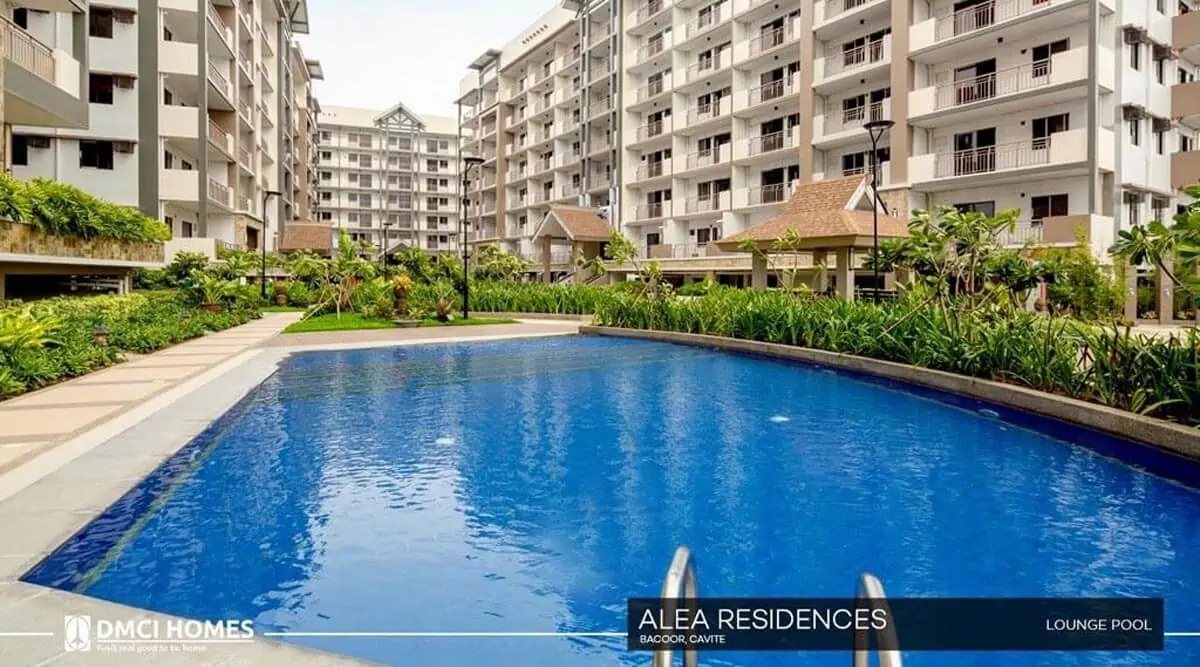 Photo courtesy of DMCI Homes via dmcihomes.com
Photo courtesy of DMCI Homes via dmcihomes.com
The Alea Residences is charmingly suburban. It is a four-building, medium rise residential development. It sports an invigorating mix of amenities, such as a children’s play area, fitness gym, game area, kiddie pool, lap pool, lounge pool, lounge area, and ang AV room, as well as advanced facilities intended to make the most out of life!
2. Calathea Place
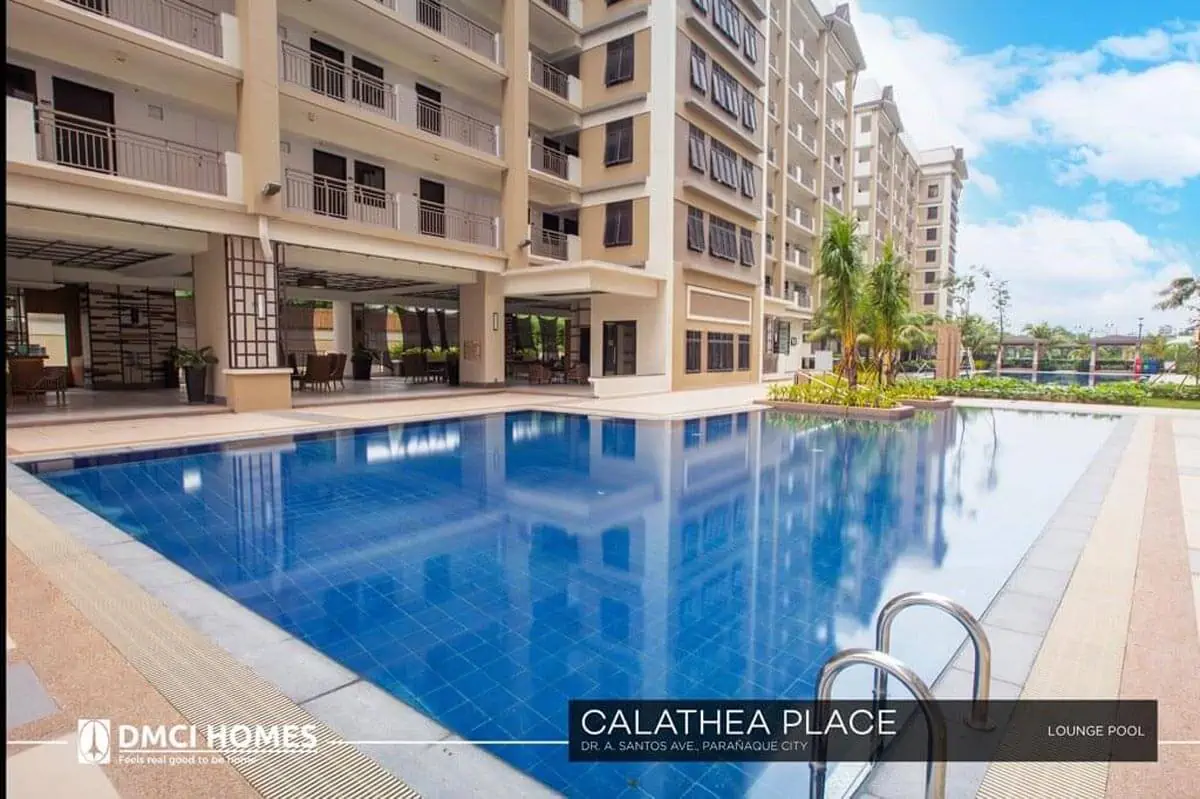 Photo courtesy of DMCI Homes via dmcihomes.com
Photo courtesy of DMCI Homes via dmcihomes.com
Calathea Place is the manifestation of nature’s blissful vibe. Feed your soul with life’s simple pleasures; away from the hustle and bustle of Manila’s busy roads. Create yourself an inviting home channeling the blissful vibe at DMCI’s expertly planned and masterfully crafted Calathea Place. It offers a wide range of general facilities, such as a multi-purpose court, play area, kiddie pool, lap pool, as well as a lounge pool.
3. Verdon Parc
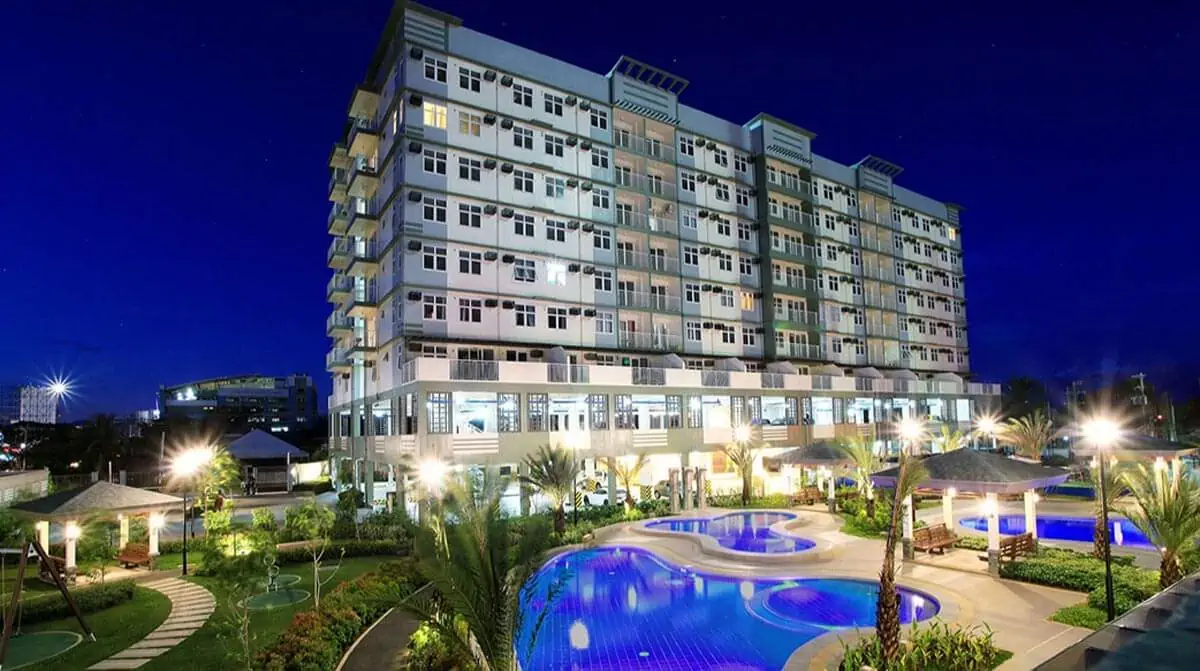 Photo courtesy of DMCI Homes via dmcihomes.com
Photo courtesy of DMCI Homes via dmcihomes.com
Verdon Parc allows you to rediscover refined living. Cosmopolitan living meets relaxation and leisure of refinement. Lounge in a hectare of greenscapes and amenities, beautifully designed to provide a convenient retreat amidst a host of amenities and panoramic views that Verdon Parc can offer. Verdon Parc offers amenities such as a general playground area, clubhouse, jogging/biking path, lap pool, lounge pool, sky garden, and a palm promenade.
4. The Calendine
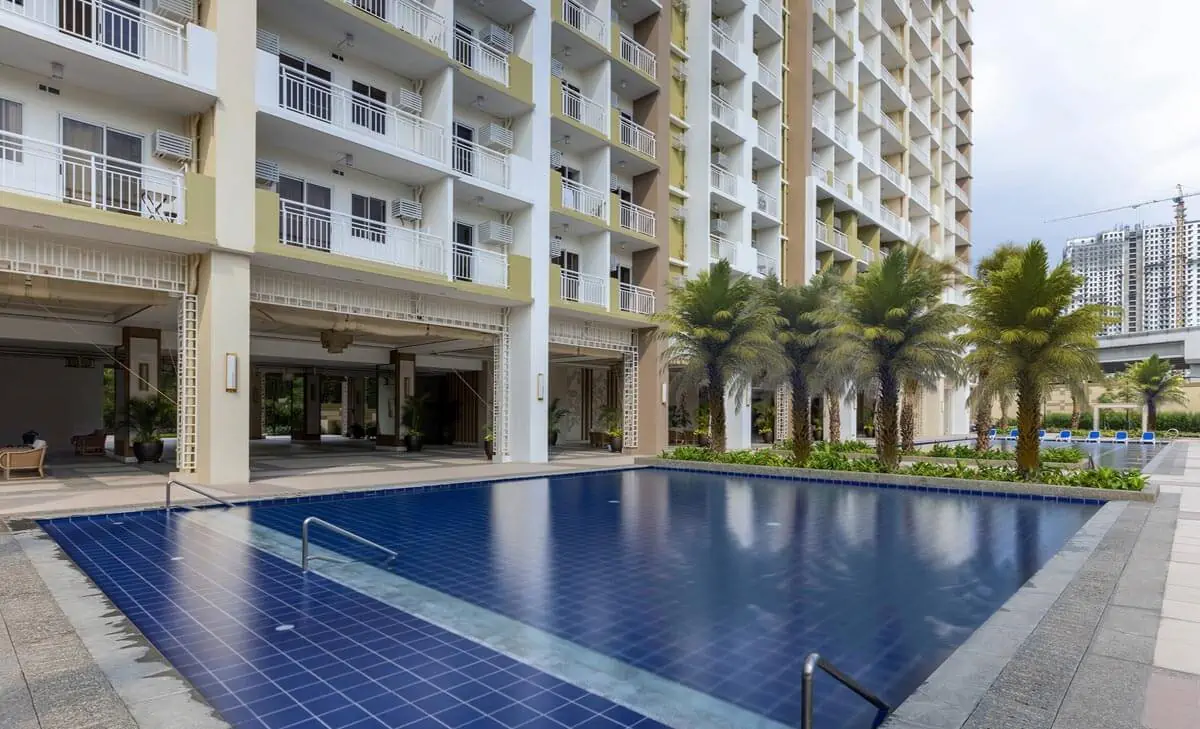 Photo courtesy of DMCI Homes via dmcihomes.com
Photo courtesy of DMCI Homes via dmcihomes.com
A one tower high rise development inspired by modern contemporary architecture, The Calendine inspires everyday modern living. With its vibrant and growing urban landscape as well as its lush and modern landscape, The Calendine brings pleasure of living in a private and rhythmic space.
The general facilities offered by The Calendine are multi-purpose court, children’s playground, kiddie’s pool, lap pool, grill pits, landscaped gardens, sky lounge, and a sky patio.
What you Need to Consider
 Photo courtesy of Startup Stock Photos via Pexels
Photo courtesy of Startup Stock Photos via Pexels
While rent-to-own contracts can vary significantly depending on the agreement between you and your lessor-seller, one thing remains clear: You will require due diligence before entering into a rent-to-own contract.
Due diligence in the sense that you must first research what kind of contract that you want to enter into, know the specific provisions in the said contract, as well as having knowledge of what the properties and programs that are available for you. This allows you to not only make your rent-to-own contracts as seamless and as convenient as possible, but also ensure that there will be no legal problems in the future.
Key takeaways
Now that we have discussed the benefits of a rent-to-own agreement as well as the specific provisions that you should take note of, let us discuss some of the things that you can bring with you should consider entering into a rent-to-own agreement.
- Choose the right terms. It is important to read your rent-to-own contract. This is so because a rent-to-own has two possible agreements, lease option and a lease purchase. In a lease option, you are not obligated to purchase the property; whereas, in a lease purchase, you must purchase the property at the end of the lease term.
- Know the specific provisions to be included in the contract. Knowing the purchase price, the lease period, the option fee, and what your monthly rent covers allows you to prepare your budget and thus ensure that you can pay the purchase price should you decide to purchase the property.
- Always make sure to manage your finances. Entering into a rent-to-own contract is one thing, managing your finances is another. The former is the end, whereas, the latter is the means to and end. Thus, if you do not manage your finances correctly, you won’t be able to purchase your desired condo-property at the end of the lease term. So, always make sure to correctly manage your finances.
For more inquiries and concerns, check out DMCI Homes at our website at: https://leasing.dmcihomes.com/ or contact us through +63 (2) 53248888 or email us at sales@dmcihomes.com. For leasing inquiries, contact us through +63 (2) 84037368 or email us at: leasing@dmcihomes.com








